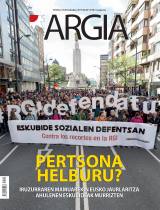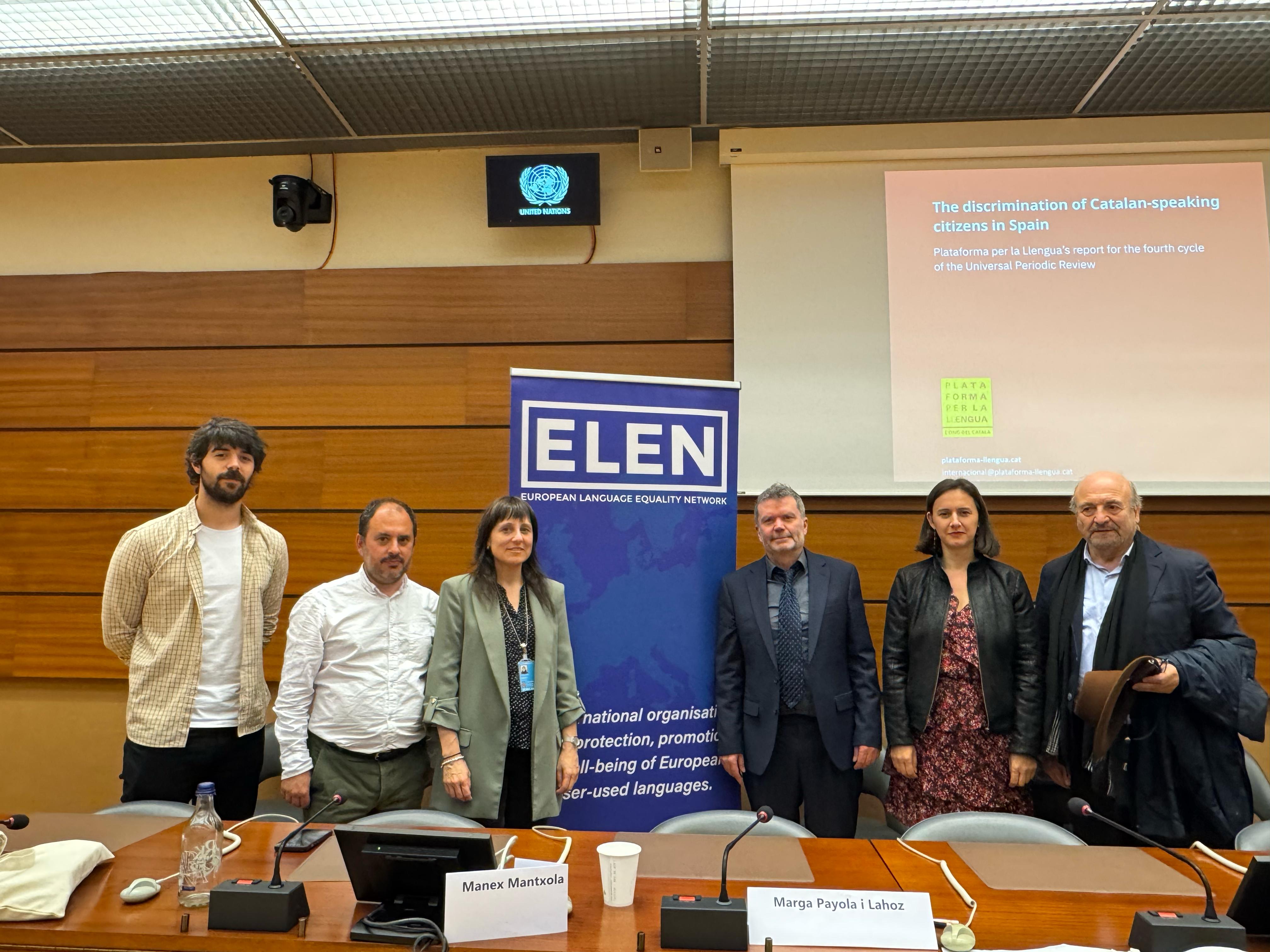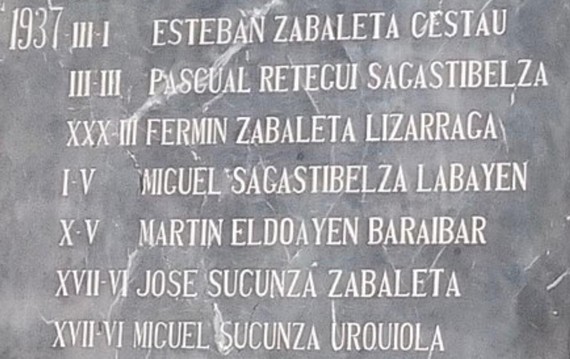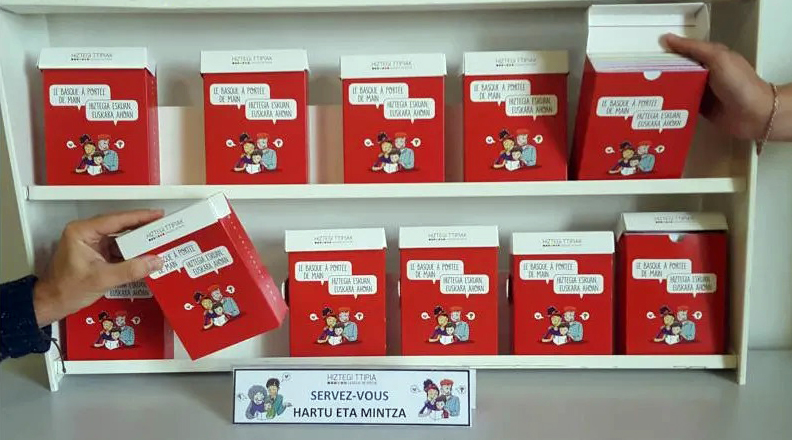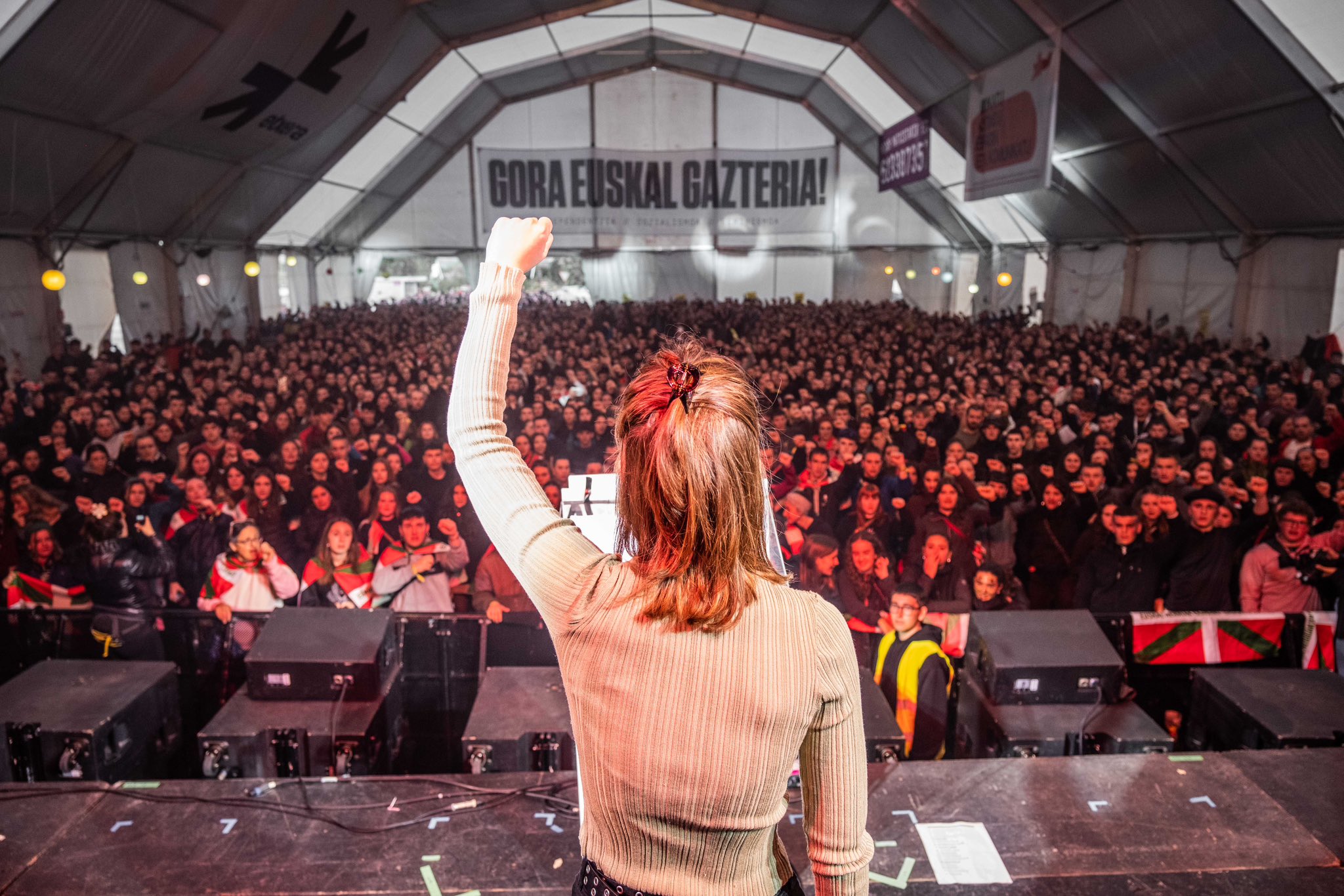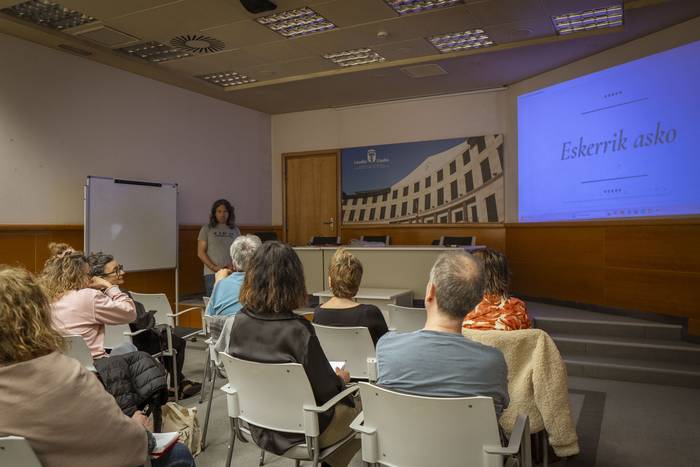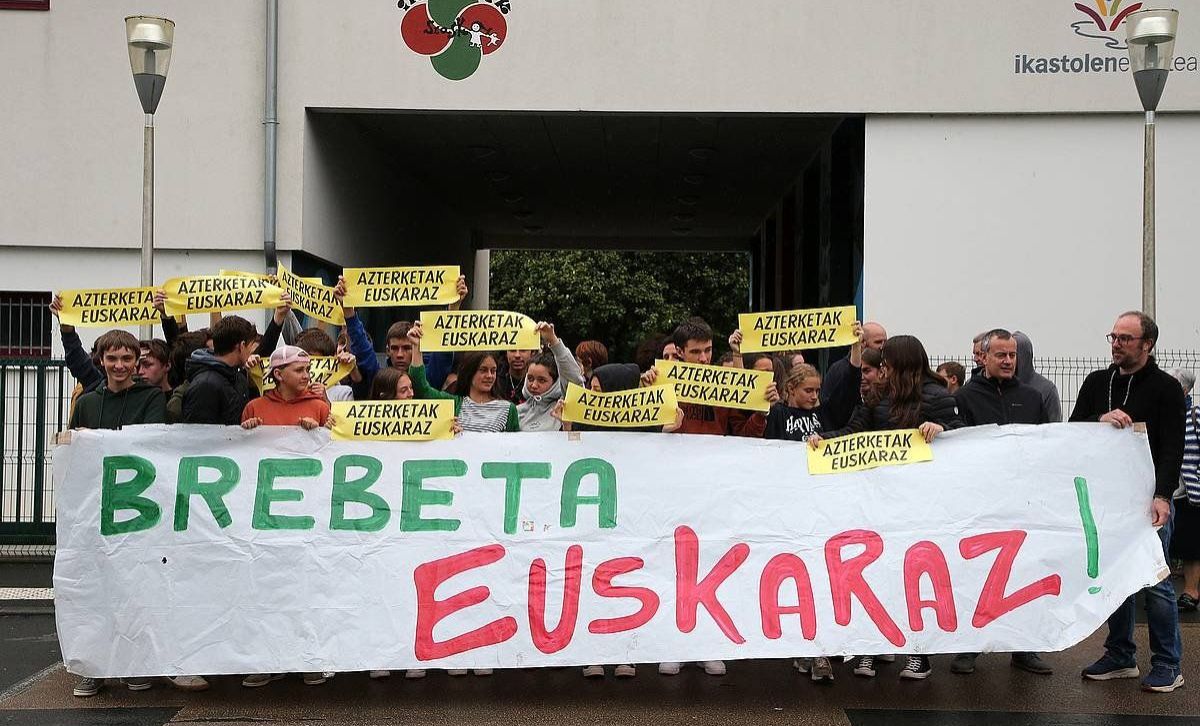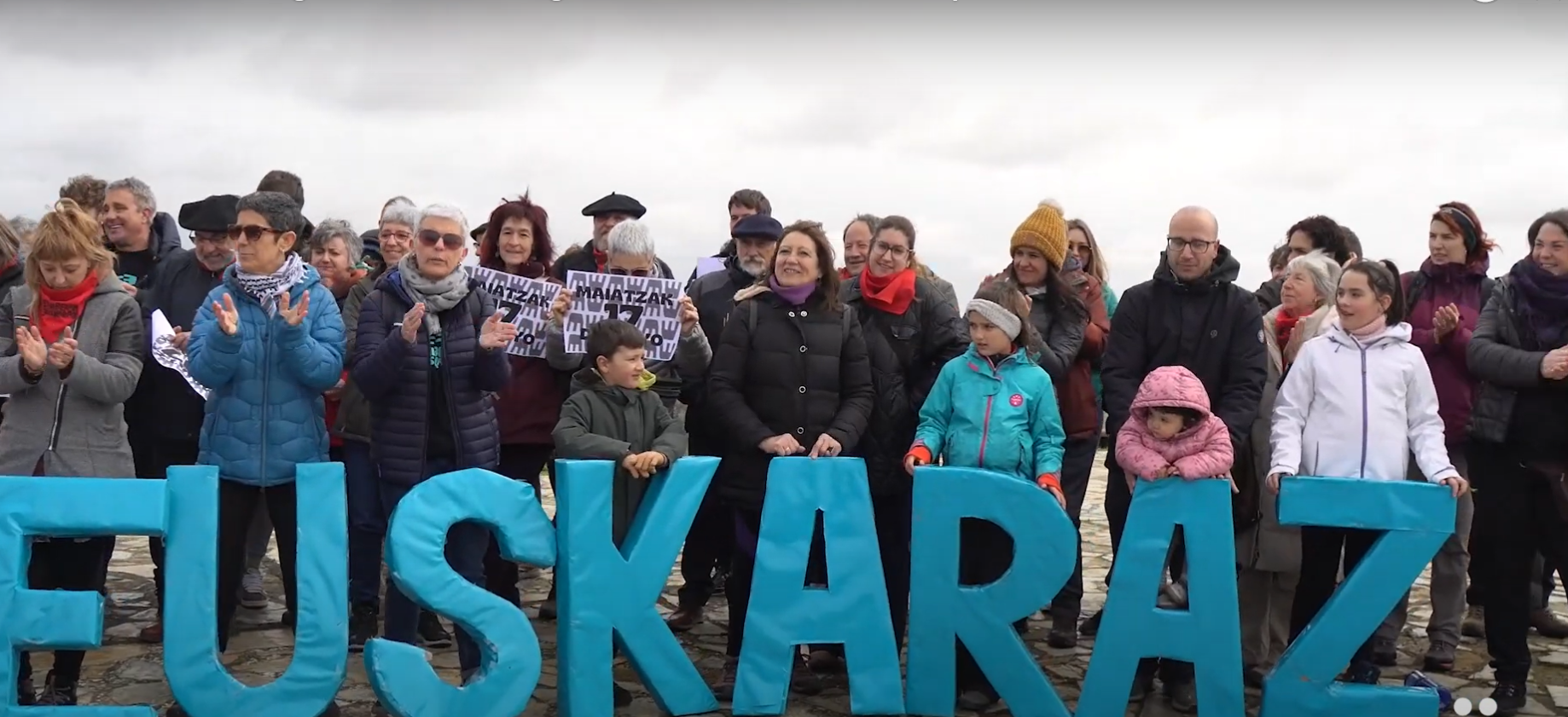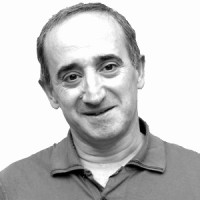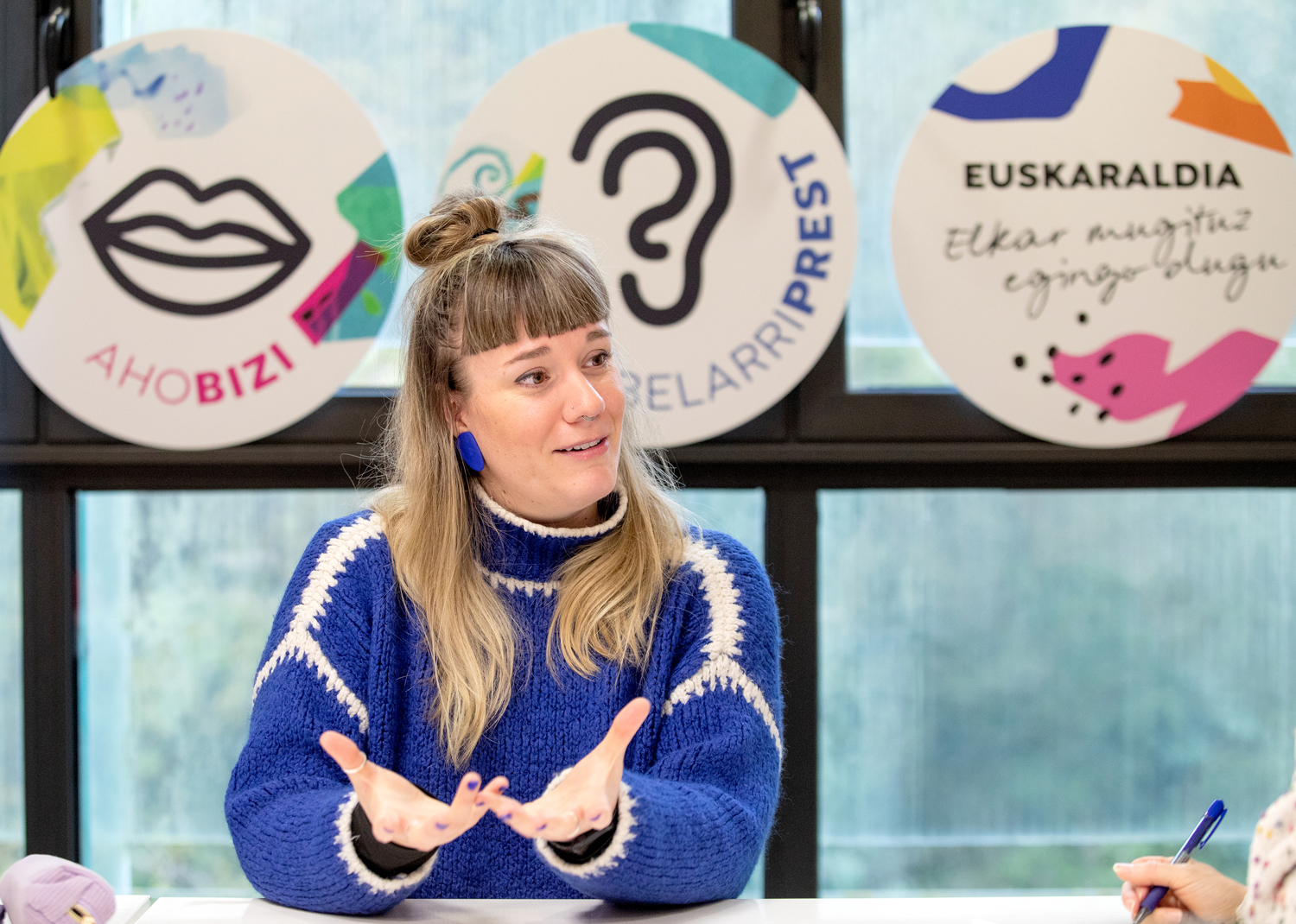Half of the parents turn to Spanish when the children are not in front
- The Basque group Galtzaundi has carried out the ‘Measurement of the Linguistic Use of Parents’ in Tolosa; now, the Basque group will determine the starting points for further work.
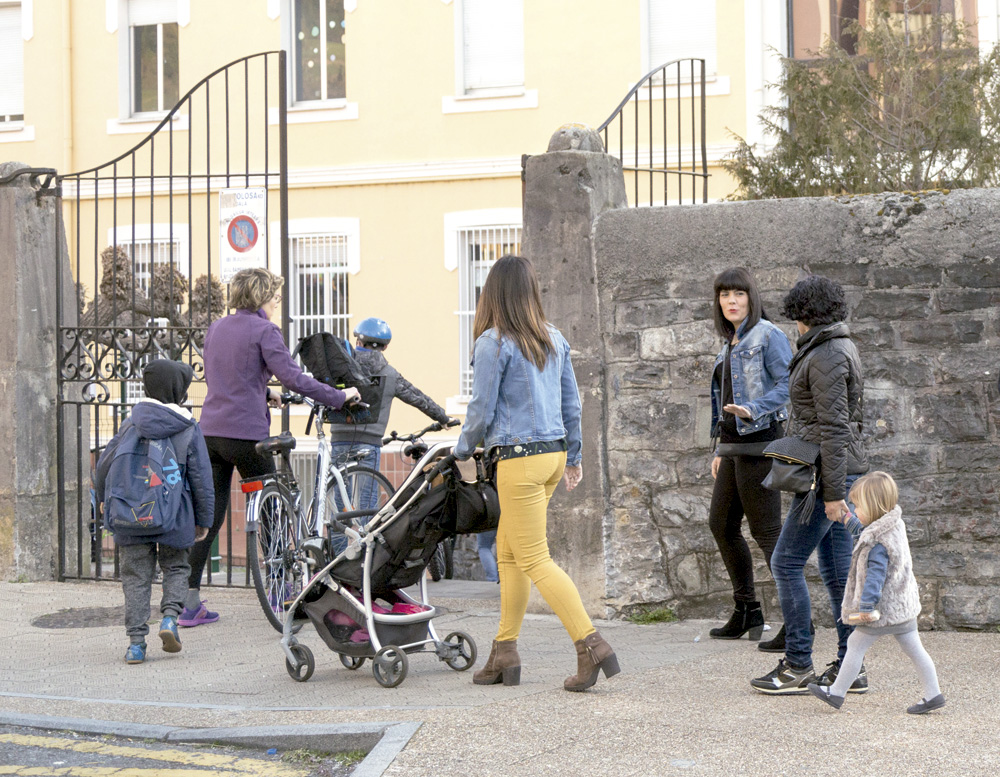
One of the last functions of the Basque group Galtzaundi has been to approach the portals of the educational centers Hirukide de Tolosa, Laskorain and Samaniego and to collect the linguistic habits of the parents of those centers. In total, data have been collected from 618 interviews and it has been concluded that more than half of the parents use Spanish when the children are not in that conversation.
“Language habits acquired as a child also have much to say in the future,” says Galtzaundi. If we add to this that “the language, above all, is collected at home”, the trends in the parents’ speech of children become vitally important, which has pushed them to measurement.
It is noteworthy the difference between street surveys and street measurements: in the surveys, the speaker knows that his/her use of language is being measured, while in the measurements or observations, not knowing anything becomes a criterion. In the case of the Galtzaundi investigation, in addition, the context itself has been special: The parents of elementary school children have been the target of the observation. That is, the parents of children who need help to go to school in general; the fathers and mothers of children of the age group in which linguistic habits are rooted.
Data were collected between September and October 2016, and after the measurement of 787 parents or guardians, the first data can be considered satisfactory for the Basque Country: 67.39% of the interviews were held in Euskera. The percentage of Spanish-language conversations was 30.09%, while the percentage of Spanish-language conversations was 2.52%.

In the portals of the schools, at the times of entry and exit, the moment in which the Basque country has the most presence is that of the conversations between parents and children. Specifically, in 74.90% of cases, when children and parents are speaking in Basque, 22.09% do so in Spanish and 3.01% in other languages.
On the contrary, when the protagonists of the measured and observed conversations are only the parents – but when the children are close – the data is more concerned. In fact, 52.81% of the parents of the educational centers in Tolosa speak with each other in Spanish, compared to 46.06% in Basque. With a difference of almost 29 points, and showing the weight of the habits of the parents, the line to be dealt with is that of the parents' speech tendencies.
As the nature of the people interviewed has been observed, Galtzaundi has warned of the importance of the space measured in the dialogue: the use of Euskera in school environments increases considerably. To make this statement, the street measurements of 2015 have been used, and both adults and children talk more about the Basque school than on the street: 5% more adults and 8.4% children.
Customs to change
Just as traditions are created, they are also modified, if they so wish, and the research published by the Basque group Galtzaundi may be a call for change for some fathers and mothers.
Hirukide, Laskorain and Samaniego already have in their hands the specific data collected in their respective educational centres and on this basis each centre will develop, as it sees fit, strategic planning.
Regarding the Basque group, they explained that the measure "confirms some of the expected trends" and that now the main challenge of Galtzaundi is to act outside the Basque circles to influence its use. At the moment, at the Mesa de Euskera de Tolosa it has been proposed to make a diagnosis every four years on the linguistic habits of parents to assess the fruits of the work done. In this way, the next course 2020-2021 will be the next match of the group phase.
This article has been published by the Tolosaldea Portal and we have brought it thanks to the CC-by-sa license.
Antton Kurutxarri, Euskararen Erakunde Publikoko presidente ordearen hitzetan, Jean Marc Huart Bordeleko Akademiako errektore berriak euskararen gaia "ondo menderatzen du"
You may not know who Donald Berwick is, or why I mention him in the title of the article. The same is true, it is evident, for most of those who are participating in the current Health Pact. They don’t know what Berwick’s Triple Objective is, much less the Quadruple... [+]
Is it important to use a language correctly? To what extent is it so necessary to master grammar or to have a broad vocabulary? I’ve always heard the importance of language, but after thinking about it, I came to a conclusion. Thinking often involves this; reaching some... [+]
Adolescents and young people, throughout their academic career, will receive guidance on everything and the profession for studies that will help them more than once. They should be offered guidance, as they are often full of doubts whenever they need to make important... [+]
Maiatzaren 17an Erriberako lehenengo Euskararen Eguna eginen da Arguedasen, sortu berri den eta eskualdeko hamaika elkarte eta eragile biltzen dituen Erriberan Euskaraz sareak antolatuta
Ansorena´tar Joseba Eneko.
Edonori orto zer den galdetuz gero, goizaldea erantzungo, D´Artagnanen mosketero laguna edo ipurtzuloa, agian. Baina orto- aurrizkiak zuzen adierazten du eta maiz erabiltzen dugu: ortodoxia, ortopedia, ortodontzia... Orduan (datorrena... [+]









